Pancit Langlang is a delicious combination of fresh miki and cellophane noodles with ground pork, flaked chicken, and tender-crisp vegetables. It's hearty, tasty, and perfect for family dinners or special gatherings.
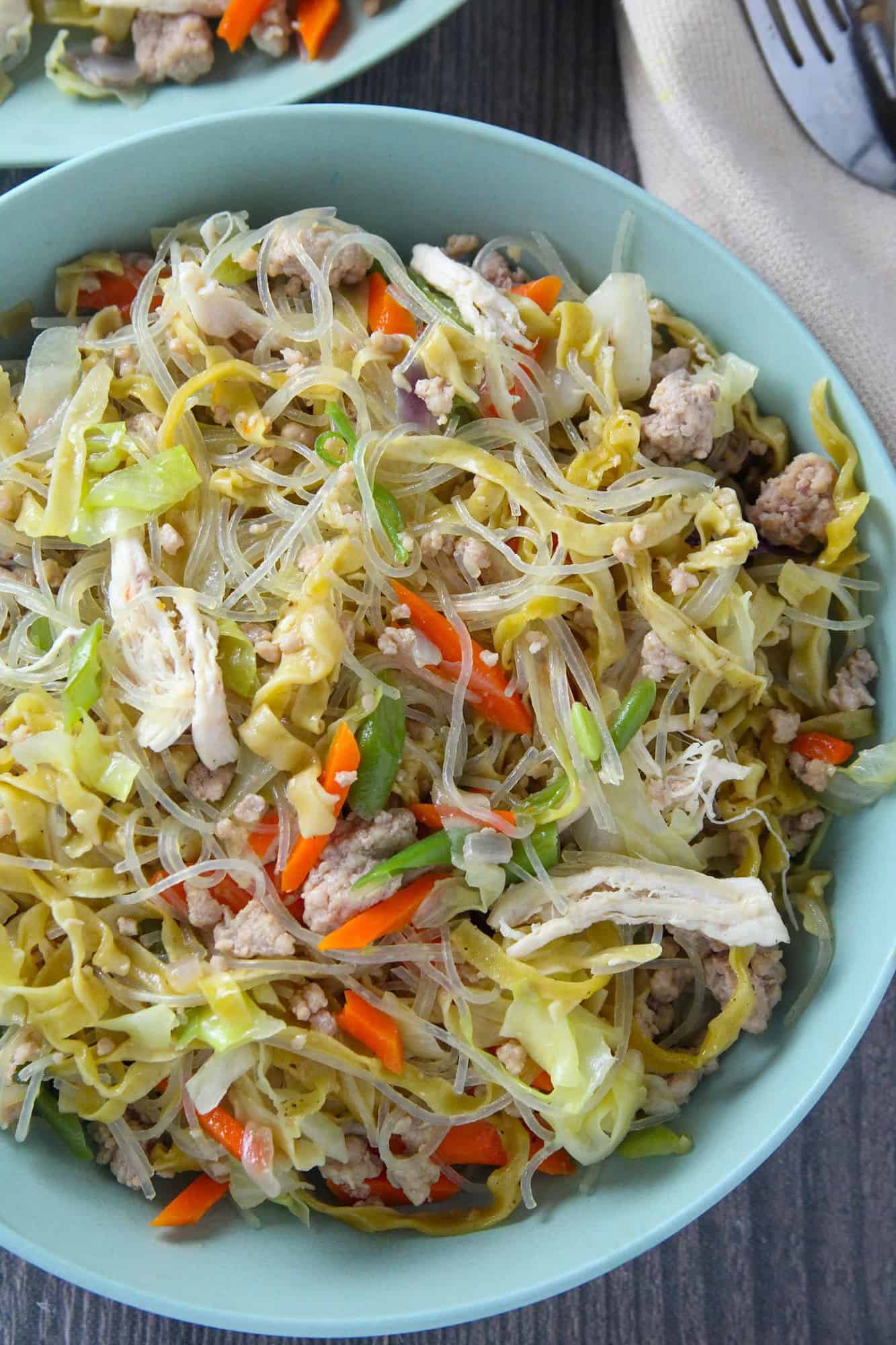
I shared a Panda Express chow mein copycat recipe a couple of weeks ago, and I realized it'd been months since I last posted a traditional Filipino noodle dish. I have quite a few pancit recipes already on the blog, but there's a lot more to explore!
I came across this Pancit Langlang on Youtube when I was researching our regional varieties of pancit, and its list of ingredients caught my interest. It's not uncommon to combine different types of noodles in one pancit dish, miki bihon being a prime example, but the addition of ground pork was a new concept to me.
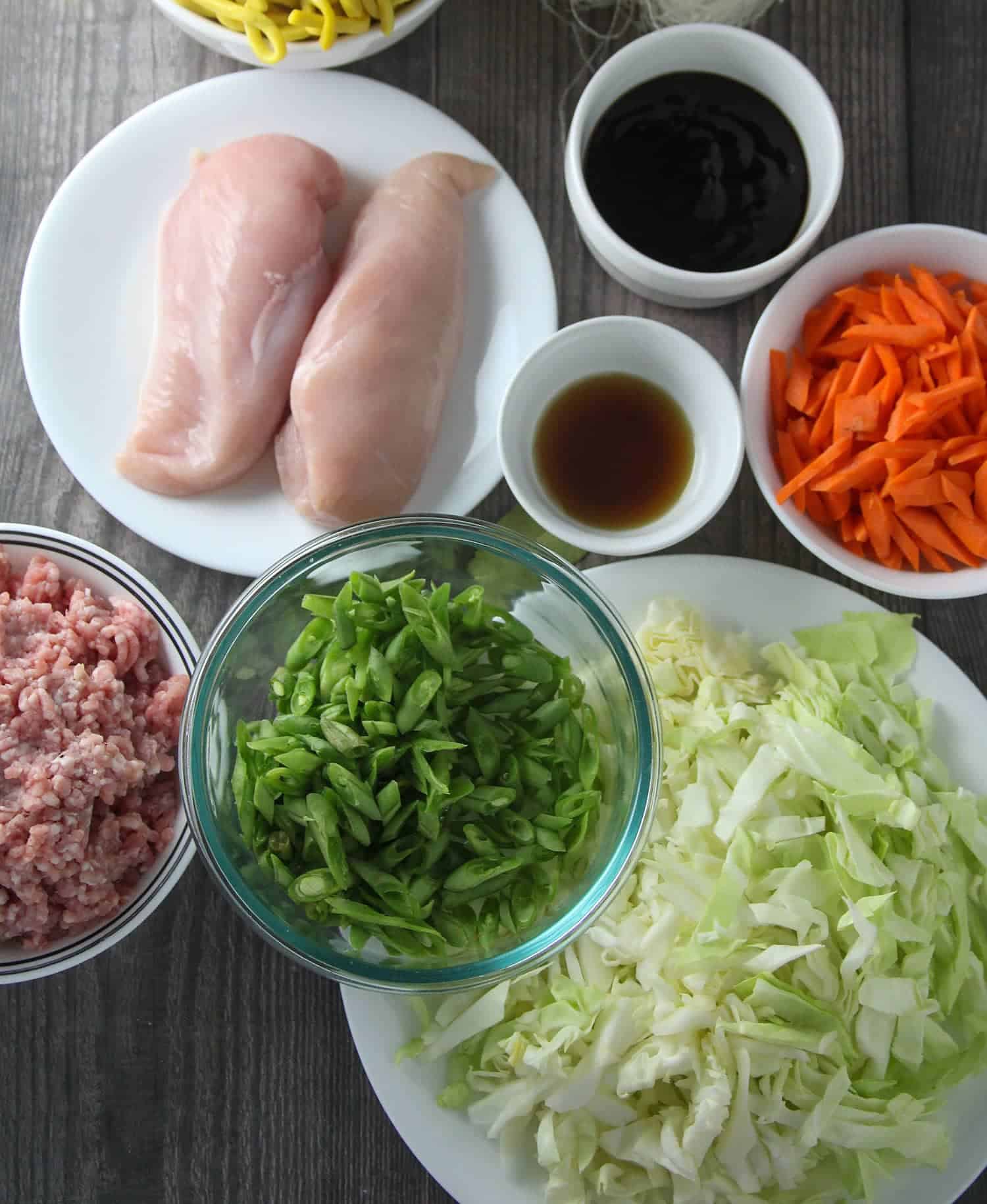
And the fact that Pancit Langlang is claimed to have been Jose Rizal's favorite was a selling point for me! Who can resist something so old and so rich in history, right?
Rizal so loved this pancit he often asked his brother, Paciano, to send him the noodles during his stay in Europe. Even in a passage in his novel El Filibusterismo, he wrote about his favorite comfort food!
Mga ginoo; ang pansit-langlang ay siyang sopas na pinakamabuti! —ang sigaw ni Makaraig; —gaya nang makikita ninyo, Sandoval, ang halo ay kabuti, hipon, tiniping itlog, sutanghon, manok, at hindi ko na maalaman kung ano pa. Bilang pamago ay ihandog natin ang mga buto kay D. Custodio; tingnan natin, magpanukala siya tungkol dito!
Chapter XXV- Tawanan – Iyakan, El Filibusterismo
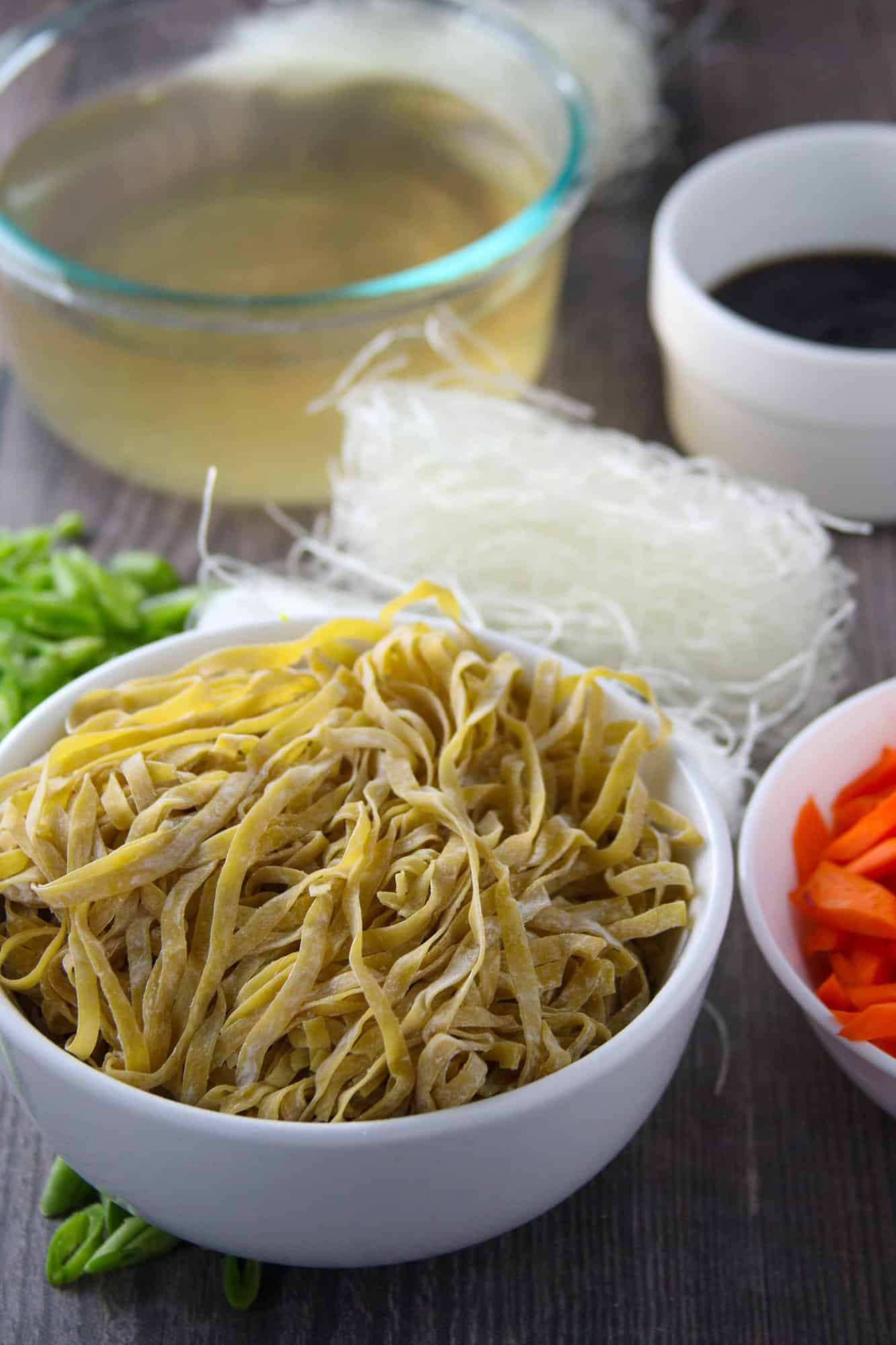
In the book, he actually referred to this pancit as sopas (soup). In my further readings, Pancit Langlang appears not a type of noodle dish but a type of noodle that is similar to our modern-day flat, thin miki.
Various regions in the Philippines have some form or another of Pancit Langlang. Iloilo has a noodle soup version that uses Pancit Molo. At the same time, Cavite is similar to the Pancit Mami, and Batangas' is a stir-fried combination of miki and either bihon or sotanghon.
Enough of the history; let's get to the recipe!
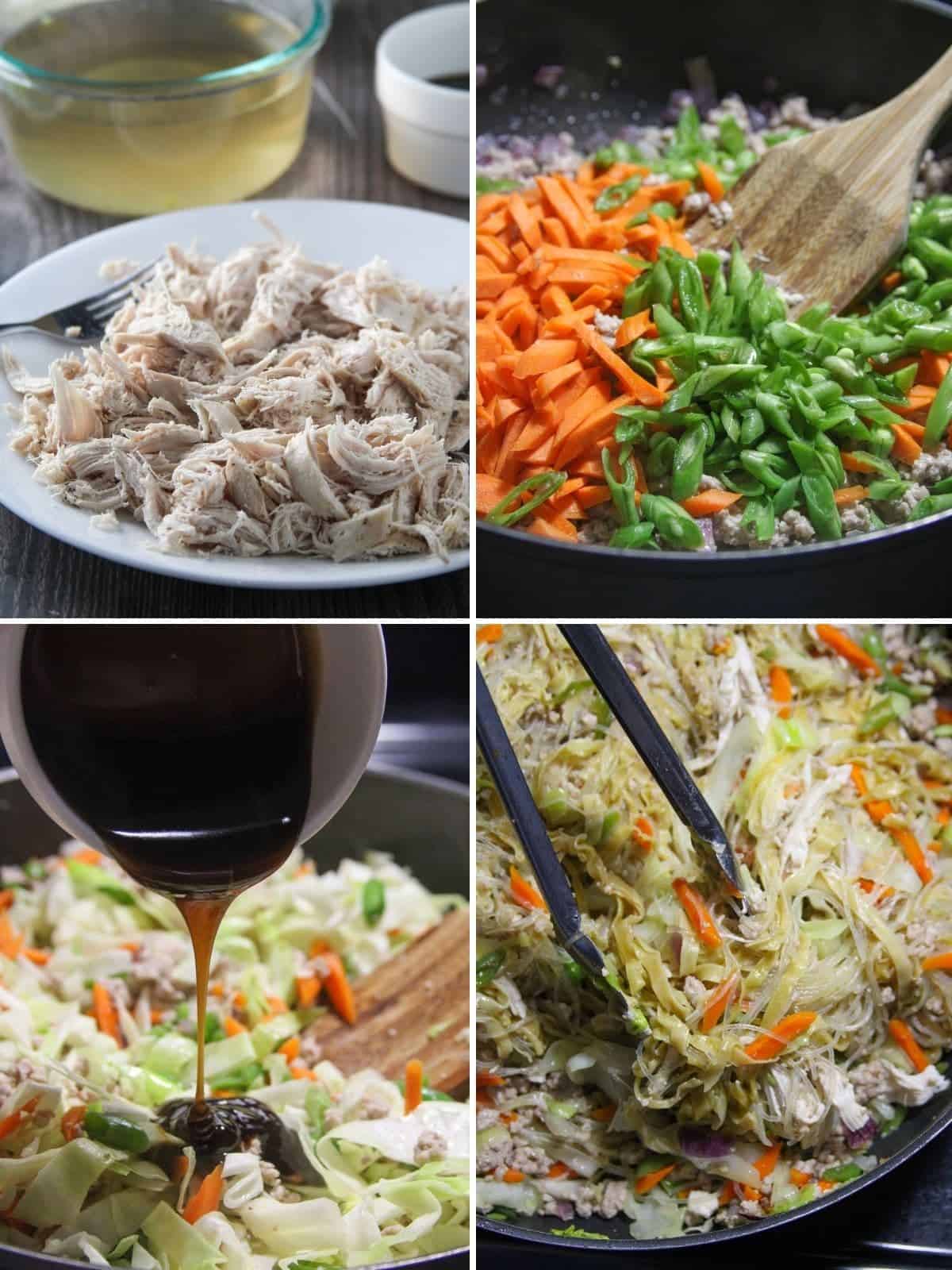
Ingredient notes
- While ground pork is a standard ingredient, this pancit is the perfect canvas for whatever assortment of protein and veggies you have on hand. Feel free to add or swap Chinese-style sausage, kinchay (Chinese celery), tenga ng daga (black fungus), and hibi (dried baby shrimp).
- You can also top the cooked noodles with toasted garlic, green onions, and crushed chicharon or chopped lechon kawali.
Cooking tips
- Poach the chicken instead of boiling. This low heat, moist cooking method helps food retain moisture resulting in juicy, flavorful chicken pieces. Plus you also get a full-bodied poaching liquid to pull together the stir-fried noodles!
- For fast and even cooking, cut the vegetables in uniform and bite sizes.
To toss the ingredients freely and without spills, use a wok or a wide skillet with high sloping sides. - Use tongs to stir-fry to help keep the noodles intact and lessen breakage.
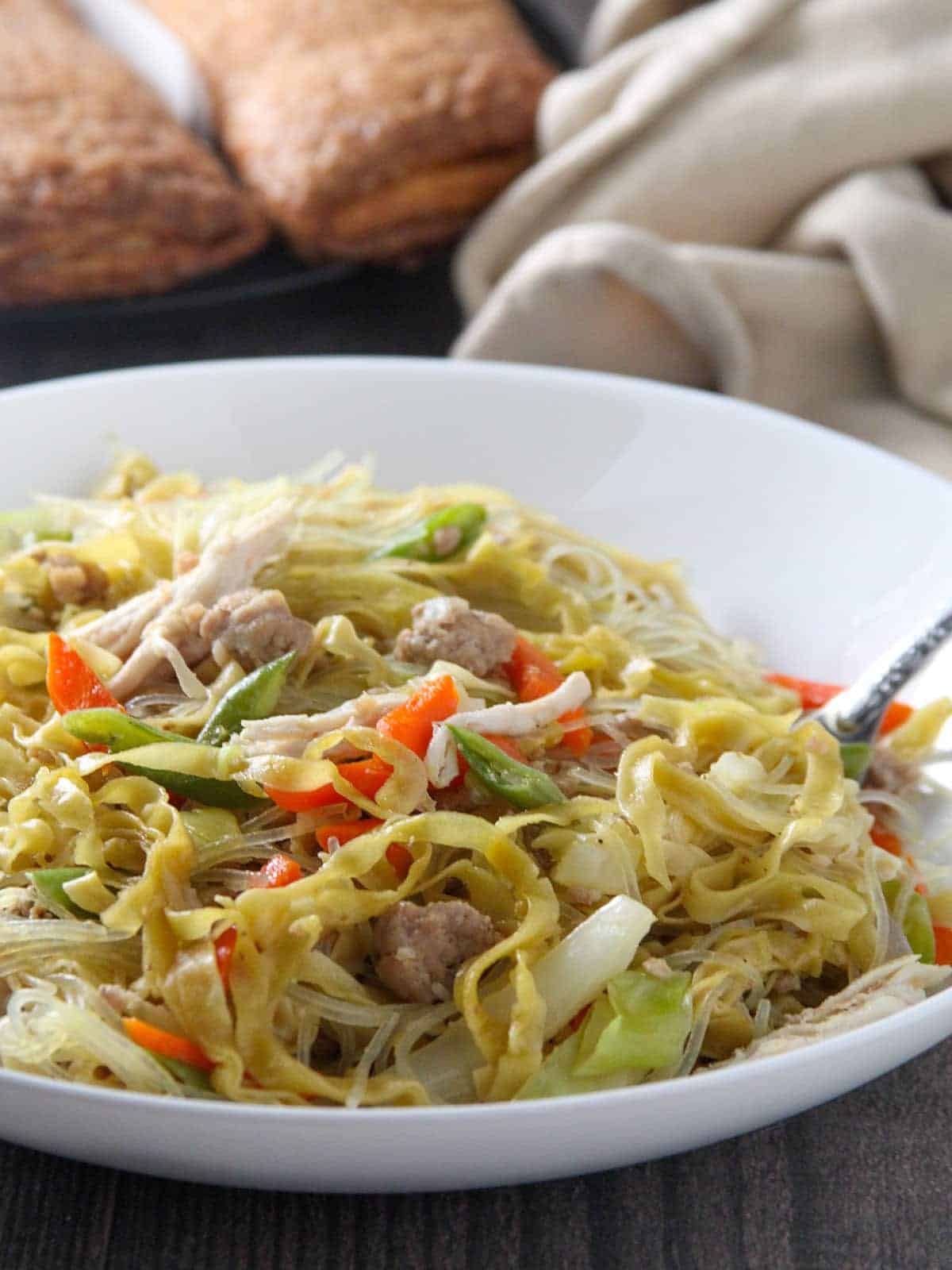
How to serve and store
- As with other pancit dishes, pancit langlang is a delicious and filling midday snack or main meal. It also makes a tasty addition to parties or special occasions.
- Enjoy with puto, pandesal, or steamed rice.
- Transfer leftovers to a container with a lid and refrigerate for up to 3 days. This dish doesn't freeze well.
Ingredients
- 1 pound boneless, skinless chicken breasts
- 1 onion, peeled and quartered
- 1 teaspoon salt
- 1 teaspoon peppercorns
- 2 bay leaves
- 4 ounces cellophane noodles (sotanghon)
- 2 tablespoons vegetable oil
- 1 onion, peeled and chopped
- 3 cloves garlic, peeled and minced
- 1 pound ground pork
- ¼ cup oyster sauce
- 2 tablespoons sesame oil
- 1 cup carrots, peeled and julienned
- 1 cup green beans, cut thinly on a bias
- ½ small cabbage, sliced thinly
- 2 cups broth (reserved from poaching the chicken)
- 16 ounces fresh miki noodles (thin and flat)
Instructions
- In a large pot, arrange chicken in a single layer. Add quartered onions, salt, peppercorns, and bay leaves.
- Add enough cold water to cover chicken to about 1-inch high (I used about 6 cups). Bring to a boil, skimming scum floats on top.
- Cover, reduce heat to low, and gently simmer for about 10 to 15 minutes or until the chicken breasts are just cooked through.
- With a slotted spoon remove chicken and allow to cool. Shred chicken and set aside.
- Strain the poaching liquid and reserve about 2 cups.
- In a bowl, soak cellophane noodles in warm water just until softened. Drain and set aside.
- In a wok or wide skillet over medium heat, heat canola oil. Add onions and garlic and cook until softened.
- Add ground pork and cook, stirring occasionally, until lightly browned.
- Add carrots and green beans. Cook for about 1 minute or until half-done.
- Add cabbage and cook for another 1 minute or until half-done.
- Add oyster sauce and sesame oil. Stir to combine.
- Add miki noodles and cellophane noodles.
- Add broth, starting with one cup and adding more as needed.
- Add shredded chicken.
- Using tongs, gently toss together until combined. Season with salt and pepper to taste.
- Continue to cook until the noodles are cooked yet firm to bite, the liquid is mostly reduced and the vegetables are tender-crisp.
- Remove from heat and transfer to a serving platter. Garnish with toasted garlic and green onions, if desired. Serve hot.
Notes
Nutrition Information
“This website provides approximate nutrition information for convenience and as a courtesy only. Nutrition data is gathered primarily from the USDA Food Composition Database, whenever available, or otherwise other online calculators.”

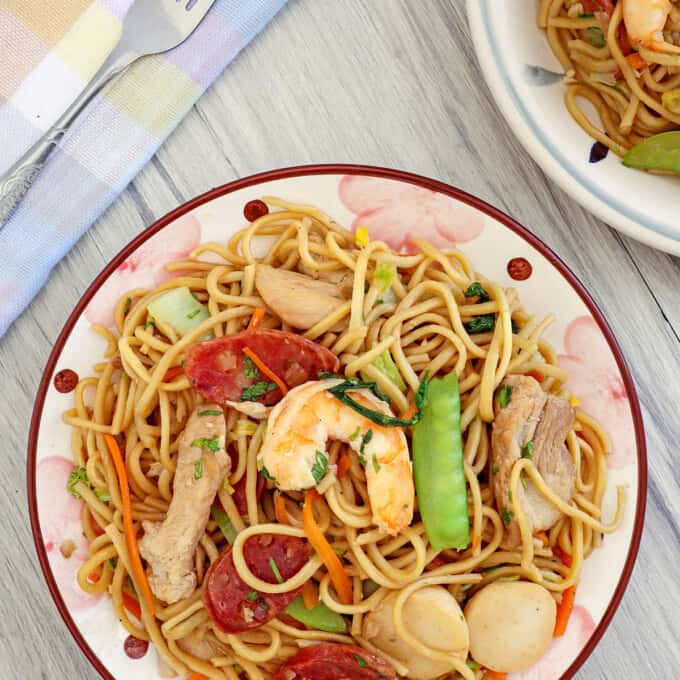
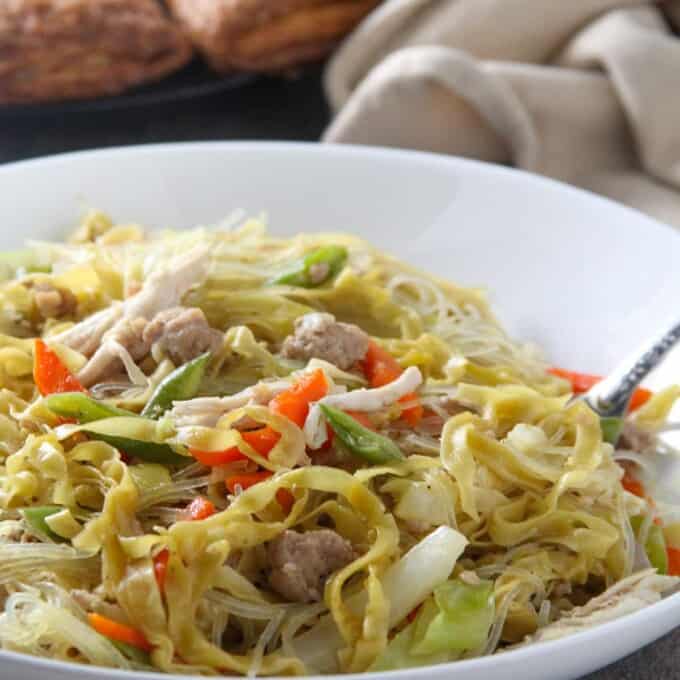
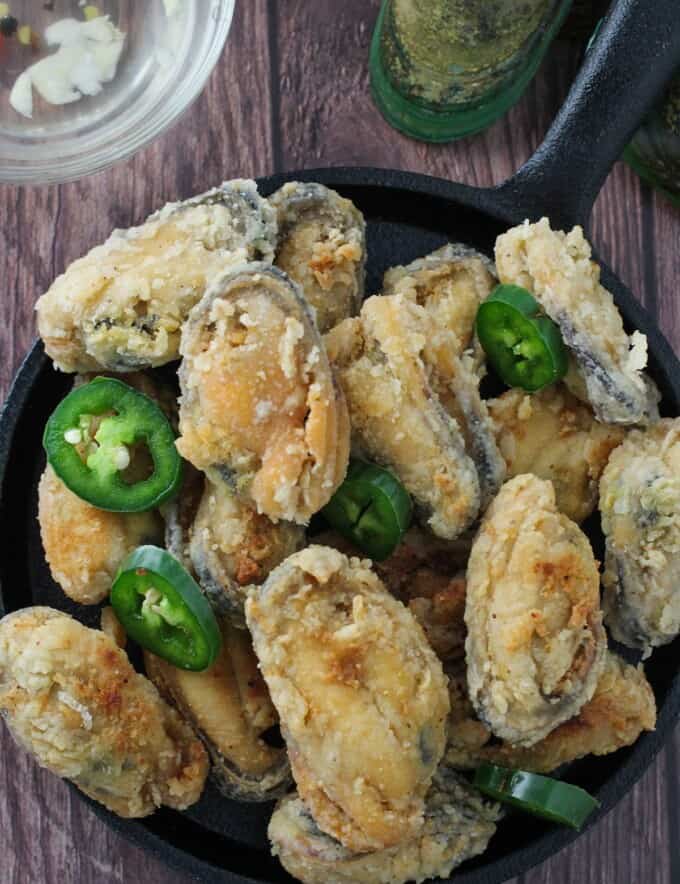
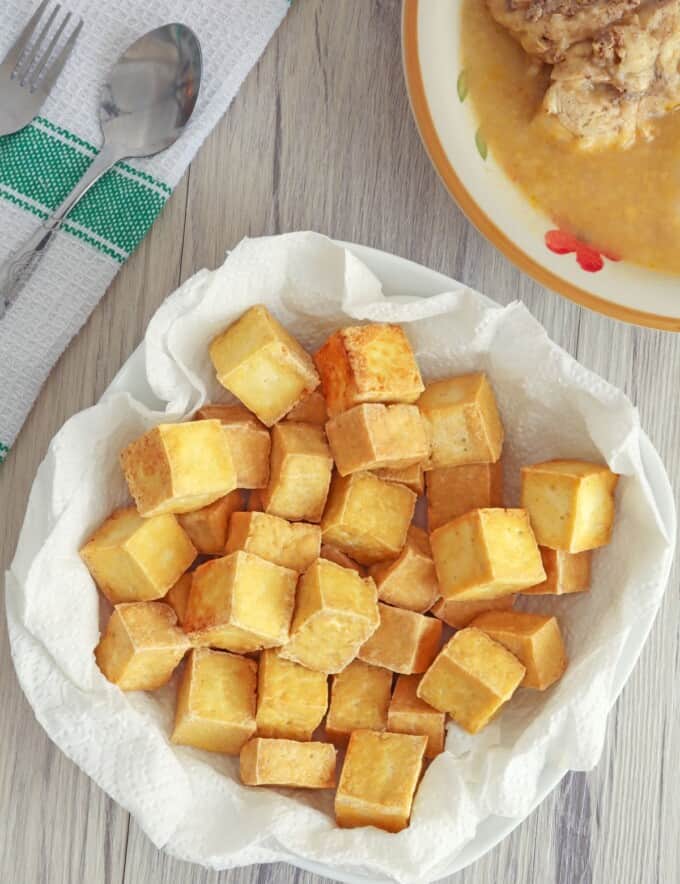
Criselda Reyes says
Can I use canton instead of flat miki?
Thank you
Lalaine Manalo says
Yes, you can 🙂
Tita Terry says
This really look delicious, I will try soon. What can you use instead of miki noodles? I have never seen miki noodles in any Asian store here in Miami. Is it the same as Chinese egg noodles? I was also wondering if you can make miki noodles from scratch at home?
Lalaine says
Hi Miss Terry!
Yes, you can use any thick fresh egg noodles. I don't know how to make noodles from scratch but its definitely on my to-learn list 🙂
Tita Terry says
Thanks! I do hope you learn how to make miki noodles from scratch and pass it on! I’ve seen videos how to make pasta noodles but they don’t look anything like our flat miki noodles.
Lalaine Manalo says
Hi Terry! Working on it 🙂
Ramon says
Why is "1/4 cup oyster sauce" mentioned TWICE in the Ingredients List -- but mentioned only ONCE in the Directions List (Step 9)? When do we add the Oyster Sauce the 1st time and then the 2nd time?
Lalaine says
I am sorry about that, I typed it twice. The recipe card corrected 🙂 Thank you for letting me know.
lynda says
Noodles is such a comfort food but especially Pinoy type pancit.
Yr pancit langlang looks delish and so are your other posts.
Thank you so much for sharing yr recipes. I have tried a lot of
yr recipes and it has always turned up great.
More power to you!
Lalaine says
Nothing beats a hefty plate of pancit for me 🙂
Thank you so much, Lynda, for your feedback. I am so happy you're enjoying the recipes.
Charlie says
This looks really good. thanks for the recipe. I will try it very soon!
Lalaine says
Please do, it's delicious!